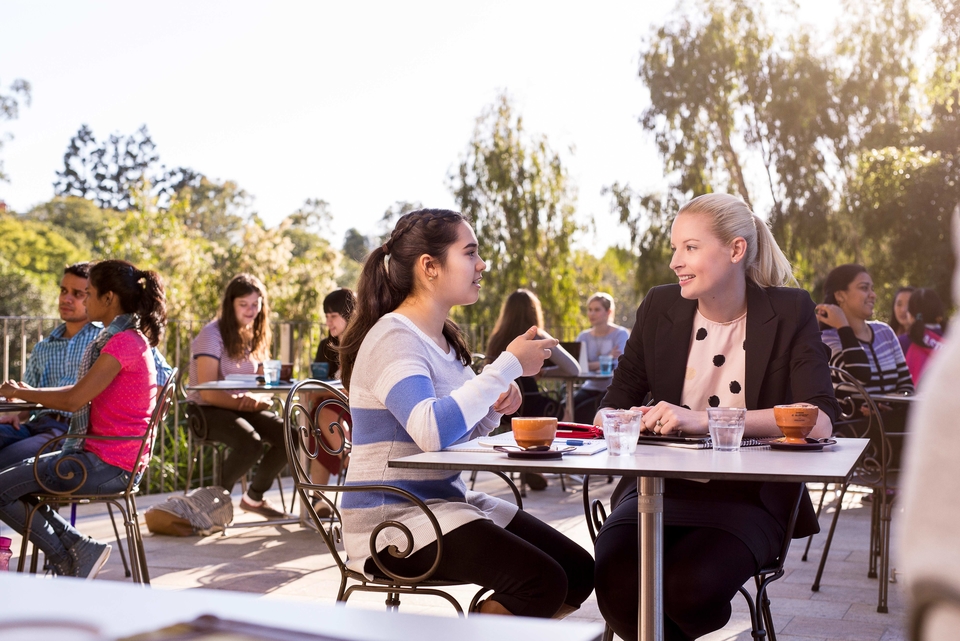
Whether you are a graduate entering the workforce for the first time or a mature student embarking on a new career, starting a new job can be a daunting prospect. Even if you have the qualifications, you may be unsure what is involved in the role on a day to day basis, whether you will fit in with the culture or if you have made the right decision.
An industry mentor is one way to smooth the transition. “A mentor will give you an insight into the world of work and how to be a successful professional,” says Cate Clifford, an Employability Specialist with UQ’s Faculty of Business, Economics and Law (BEL). “It’s an opportunity to learn from someone else’s experience - their triumphs and their failures. You can find out about the areas that they work in and start to understand the nuances of the sector. They also provide networking contacts inside the industry.”
For undergraduates in particular, mentors act as critical friends, says Cate. “They provide a supportive environment that questions your assumptions. They help mentees to articulate their goals, improve their communication and interpersonal skills. They will critique your CV, support you with personal leadership and talk about workplace issues such as work-life balance - of particular importance to Millennials.”
For postgraduate students changing career path, the networking opportunities are likely to be a key focus. A mentor gives them a connection inside their new profession to understand how it works and how to leverage themselves within this new environment.
The BEL Career Mentoring Program matches graduates and postgraduates in their final or penultimate year with a mentor from their chosen field. Mentors are selected on the basis of their industry background and will have at least five years’ experience, and in many cases, considerably more.
Students first attend an induction session, then make initial contact with their mentor by email, before meeting face to face at a mentoring breakfast event. The School suggests holding four to six meetings during the semester, each lasting for around an hour. The program concludes with a workshop where students reflect on what they have learned and how to use it to differentiate themselves in the market.
The BEL model is based on reciprocal mentoring, where both parties learn from each other and both benefit from the relationship, says Cate. However students drive the program and to get the most out of it, she recommends they start strongly and move quickly from the introductory phase.
“The amount of effort you put in as a mentee directly correlates with the outcomes – we see this time and time again,” she says. “You want to demonstrate that you are really engaged. It doesn’t matter where you are on your journey; it’s about showing you are enthusiastic, organised and pro-active. Also, be sure to acknowledge the fact that your mentor is giving you their valuable time, and that you appreciate it.”
Sherry Lam, a mentee who took part in the program in 2016, says: “My mentor, Jeff Weigh [former CEO of South Bank Corporation] has been very inspiring. He’s been a great leader and help in setting up my career goals. The networks I have made through Jeff and his colleagues have opened a world of opportunities to me, in Brisbane and beyond.”
Cate says the insights students gain from mentors can help those torn between two options to make a decision and clarify their career direction. “Sometimes students who have been following a particular path suddenly have a moment where they realise ‘this isn’t what I want to do’ - but even that is very positive,” she adds.
Mentors can also have a profound effect on a student’s confidence. For mentee Alysha Mascarenhas, the experience was about ‘me thinking I can do it’. “My confidence and my belief in myself has improved immensely,” she says.
Cate adds: “A mentor is an opportunity for personal and professional growth. The growth in professional confidence and individual development is spectacular in many cases. Very often, people are transformed.”



